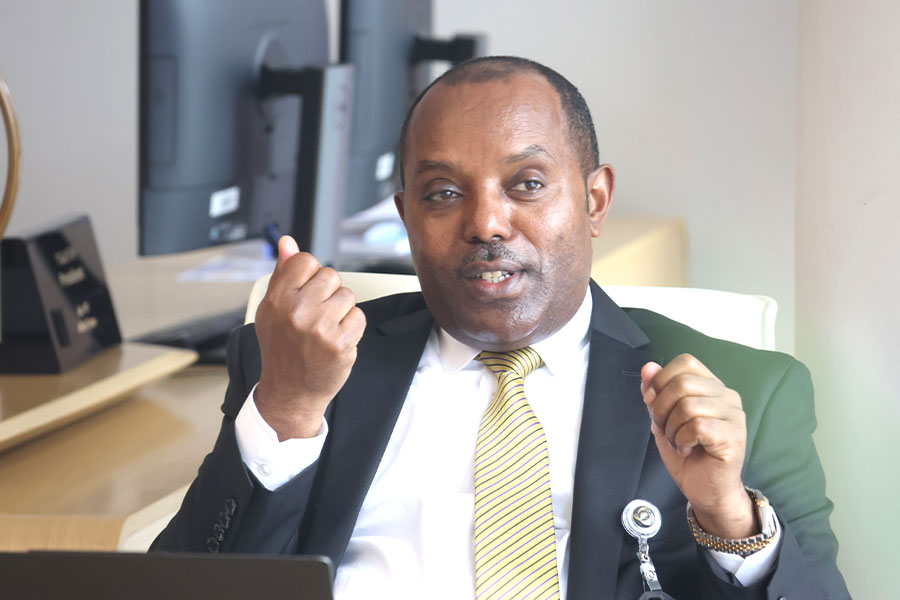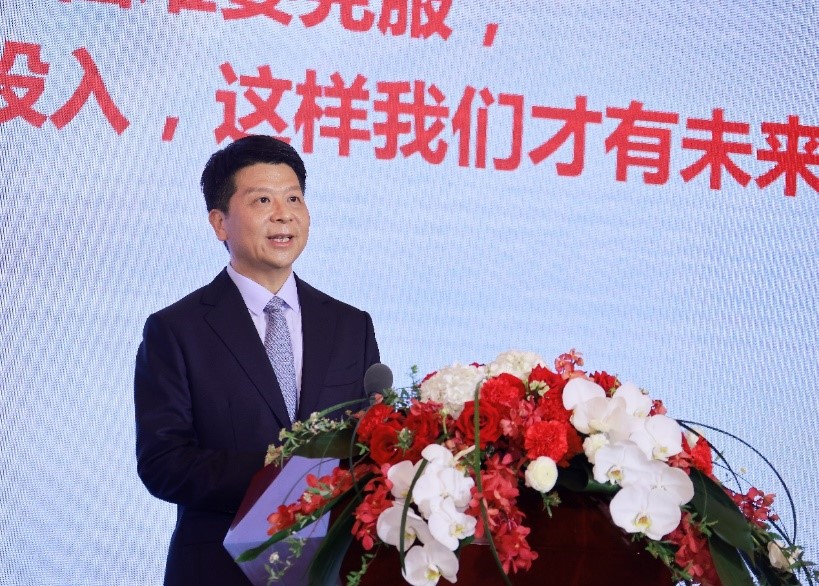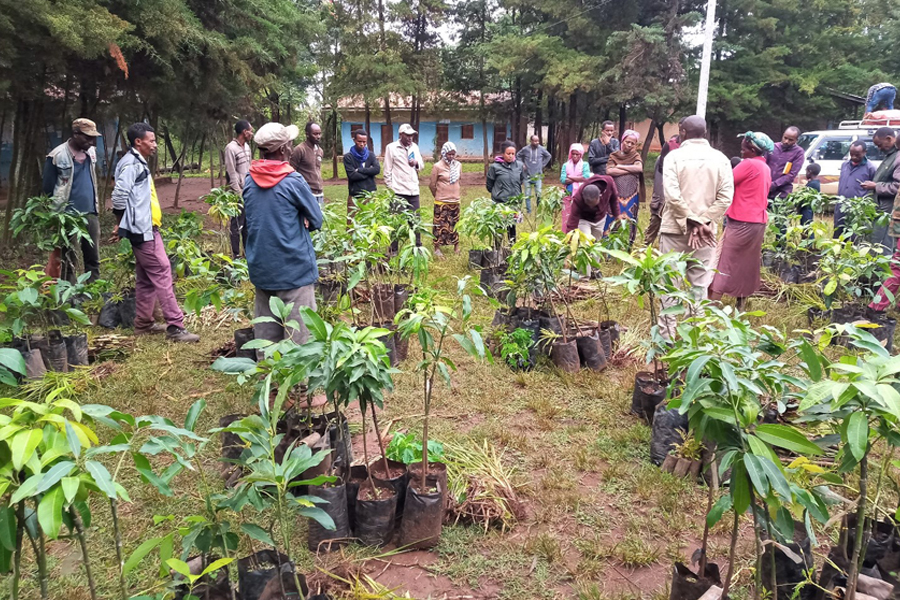
Exclusive Interviews | Sep 06,2025
Oct 22 , 2022
By Abraham Tekle
The fossil-based economic system has reached its limits. A sustainable alternative must take over, as climate change and environmental degradation are existential threats to the world.
The European Green Deal was introduced three years ago to address these problems, with promises of a carbon-neutral economy in 30 years. The deal can bring a meaningful global impact on climate change.
The ambitious call is mobilised worldwide to address climate change and economic inequalities. Supporters of the initiatives hail it as a transformative plan that could create millions of jobs. Its critics argue that it may be too costly and too specific. For some, it is not even environmentally focused enough but used as a strategy for political ambition.
Almost a decade ago, Ethiopia devoted its economic development priorities to a green and sustainable path, planting trees. For Ethiopia, green growth is necessary and an opportunity to be seized for climate change adaptation and mitigation objectives.
Despite this enormous scope of the initiative, political involvement impedes advancing the cause of a green economy. It is also as important as the economic crisis, where the federal government supports the initiative for its intended purpose. It requires implementing several components to attain climate neutrality as a holistic project. Some movements are seen a few years forward to take the initiative to the next stage, regardless of its political misuse.
Following the economic forum held in Davos, Switzerland, three years ago to mobilise funds to plant, conserve and restore one trillion trees, Ethiopia joins the race by planting millions. But to maintain the spirit of the initiative, Ethiopia needs more energy – and that energy must be green. Its government has been developing two hydroelectric dams: the Grand Ethiopian Renaissance Dam (GERD) and the Koysha Hydroelectric Project.
But these are not sufficient. The construction has been dragged on owing to limited finance, causing the projects to fall behind schedule. Evaluating the pace and progress to promote the energy sector would require economic anticipation of the internal market.
If done right and on time, these two projects would help power the country's rail network and industrial parks with renewable energy, generating employment and surplus energy for export. It could generate revenues and contribute to the development and stability of the Horn of Africa.
The positive impact of sustainable development on health, social justice, economic growth and natural resource conservation is evident. With international finance and capacity building support, Ethiopia can now begin to seize untapped opportunities for dealing with climate change. Ethiopia is on the right track to contribute to the green global economy and leave an environmental legacy that will endure long into the future.
PUBLISHED ON
Oct 22,2022 [ VOL
23 , NO
1173]


Exclusive Interviews | Sep 06,2025

Sponsored Contents | Apr 05,2022

Commentaries | Jul 06,2019

Viewpoints | Oct 24,2020

Fortune News | Jun 22,2024

Fortune News | Oct 02,2021

Radar | Aug 23,2025

Viewpoints | Oct 21,2023

Viewpoints | Jan 25,2020

Verbatim | Jul 27,2019

Photo Gallery | 173694 Views | May 06,2019

Photo Gallery | 163917 Views | Apr 26,2019

Photo Gallery | 153947 Views | Oct 06,2021

My Opinion | 136552 Views | Aug 14,2021
Editorial | Oct 11,2025

Dec 22 , 2024 . By TIZITA SHEWAFERAW
Charged with transforming colossal state-owned enterprises into modern and competitiv...

Aug 18 , 2024 . By AKSAH ITALO
Although predictable Yonas Zerihun's job in the ride-hailing service is not immune to...

Jul 28 , 2024 . By TIZITA SHEWAFERAW
Unhabitual, perhaps too many, Samuel Gebreyohannes, 38, used to occasionally enjoy a couple of beers at breakfast. However, he recently swit...

Jul 13 , 2024 . By AKSAH ITALO
Investors who rely on tractors, trucks, and field vehicles for commuting, transporting commodities, and f...

Oct 11 , 2025
Ladislas Farago, a roving Associated Press (AP) correspondent, arrived in Ethiopia in...

Oct 4 , 2025
Eyob Tekalegn (PhD) had been in the Governor's chair for only weeks when, on Septembe...

Sep 27 , 2025
Four years into an experiment with “shock therapy” in education, the national moo...

Sep 20 , 2025
Getachew Reda's return to the national stage was always going to stir attention. Once...

Oct 12 , 2025
Tomato prices in Addis Abeba have surged to unprecedented levels, with retail stands charging between 85 Br and 140 Br a kilo, nearly triple...

Oct 12 , 2025 . By BEZAWIT HULUAGER
A sweeping change in the vehicle licensing system has tilted the scales in favour of electric vehicle (EV...

Oct 12 , 2025 . By NAHOM AYELE
A simmering dispute between the legal profession and the federal government is nearing a breaking point,...

Oct 12 , 2025 . By NAHOM AYELE
A violent storm that ripped through the flower belt of Bishoftu (Debreziet), 45Km east of the capital, in...